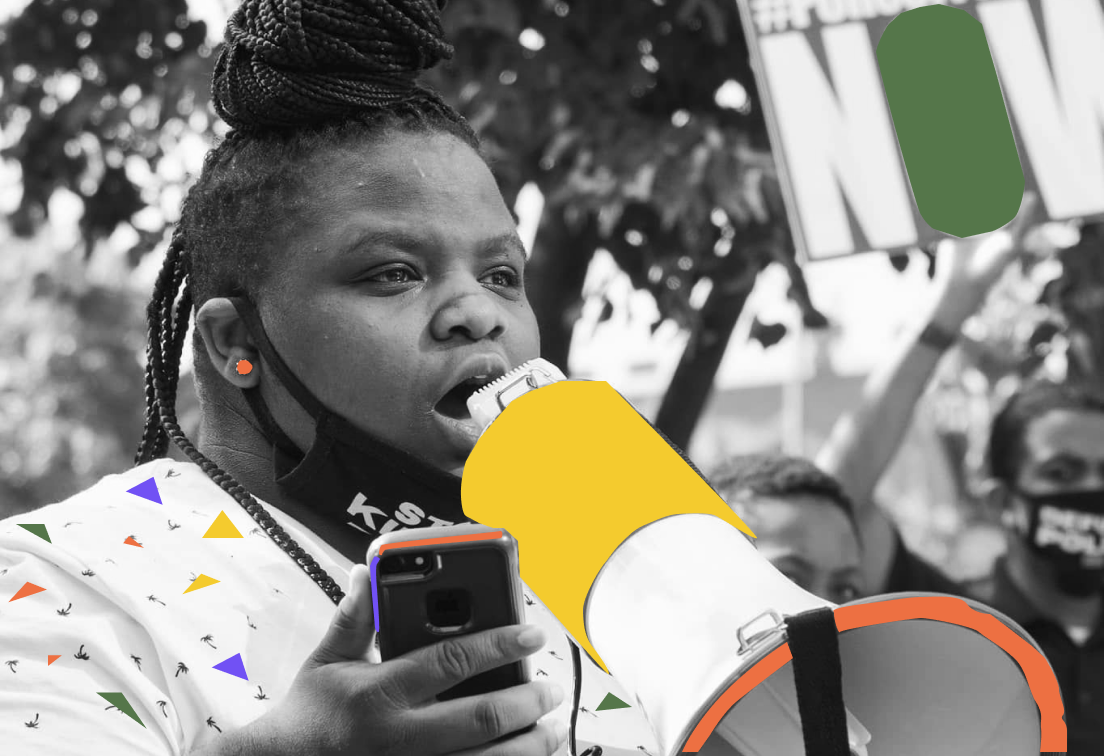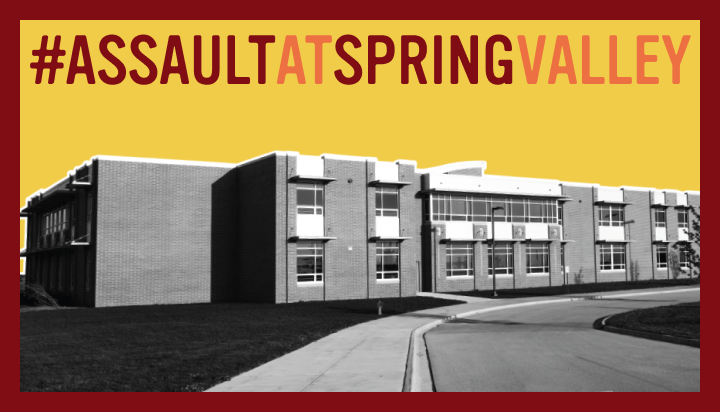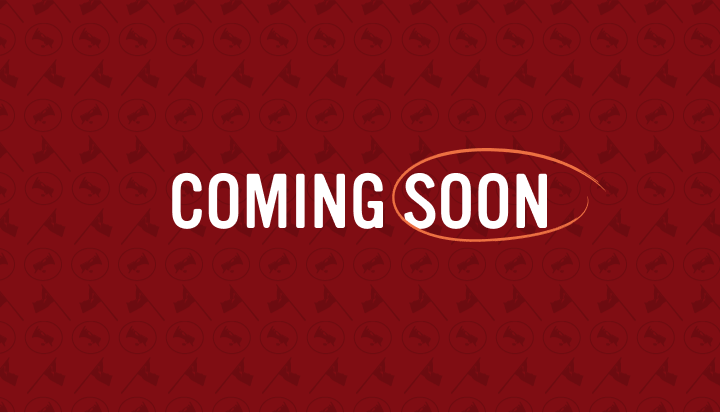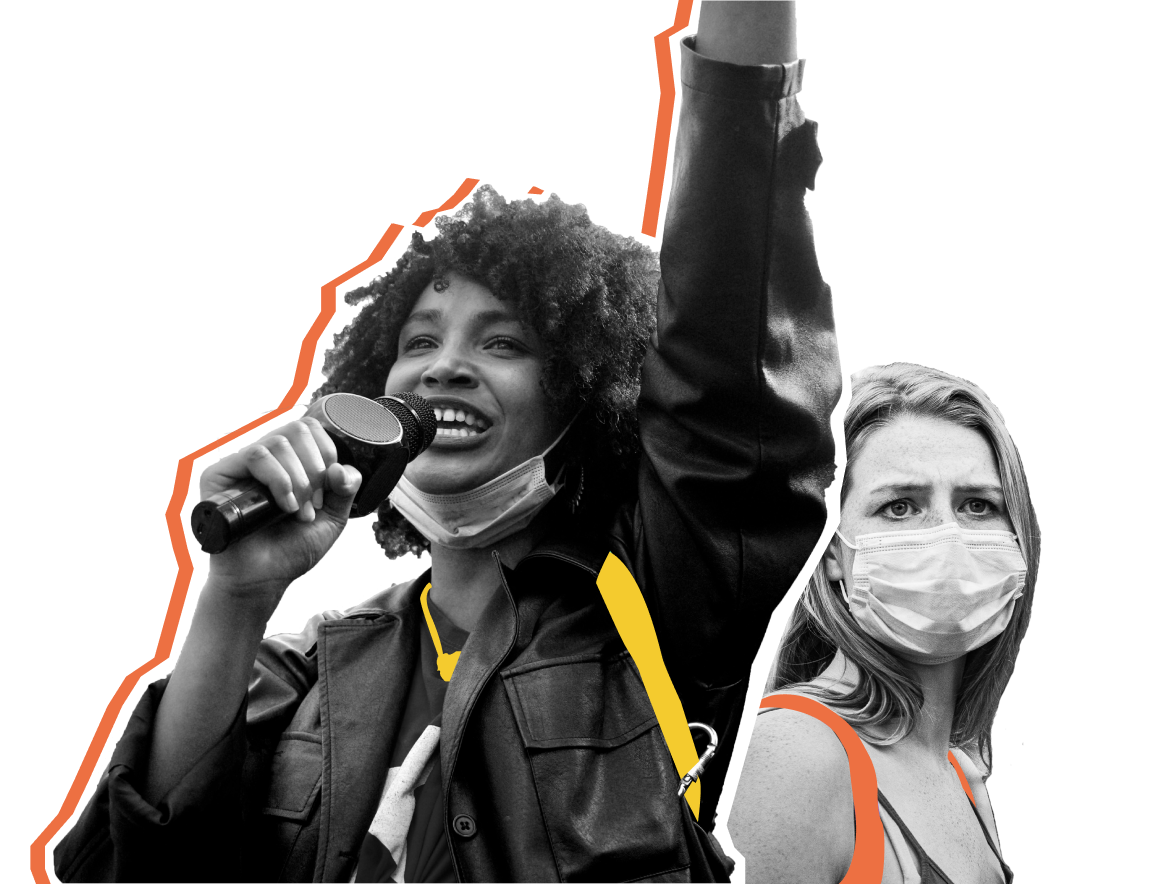“It made me wanna fight harder”: Ceon’s journey to organizing and Black Swan Academy
I wasn’t the best student. I wasn’t getting As and Bs, but I wasn’t failing. I didn’t have too much of a problem with behavior, but I did have my times – but what child didn’t? One of the counselors asked me, did I wanna join a program because I wasn’t at anything. I would go to school and go home, that was it. But they asked me, did I wanna join this program? And at first, I was like, “No. I don’t wanna do it. I don’t like talking to people. It doesn’t matter what I say or do, nothing is gonna change what goes on.” But then they talked to my mom and my mom made me go. So I went.
At my first Black Swan Academy program, they started talking about the Flint Water Crisis. They asked us what is it that we can do, or what we wanted to do. So, we came up with the idea of donating water. We didn’t expect for Miss Samantha to tell us, “Oh, someone is paying for it. To take you all down there to pass out waters to residents.” When we did that, I just saw the looks on faces of families. They looked so grateful. They saw us with our little smiley faces and all these waters, just helping them out free of charge. They didn’t have to pay for it. We was able to just give it out to them and make their day, and help them out. That just made me feel so much better.
So, after that, it just… I don’t know, I just loved doing it. And then we got into dress code and disciplinary actions in schools. And then they passed the Fair Access to Schools Act, where you couldn’t get suspended or expelled from school without probable cause. And that just made me feel like, “Okay, I’m doing something. Let me keep it going.” And so that’s how I got into and then why I stayed in it. That’s what I plan on doing for the rest of my life, fighting and making change.
After George Floyd, all of the police brutality and the killings and everything, it seems as if people look at police-free schools, “Okay, these kids aren’t saying this to get rid of rules. They’re saying this because their safety is really in jeopardy. They’re really scared. They can’t focus. They can’t handle it.” And then, it’s like people in DC, older people in DC are now, “Okay, these kids have to deal with police outside of school, in their neighborhoods, around their home, around their playgrounds, around. Why should they have to deal with it in school?” So yes, I really think that the George Floyd killing and everything else that happened afterwards really shifted the way people think about police-free schools.
It made me wanna fight harder. It made me think, “Okay, so this is happening. This is in the neighborhood. This is what’s going on.” It seemed like everywhere you turned, it was someone getting hurt or killed by a police officer. Eventually, it got to a point where I’m like, “Okay, I can’t take this anymore. Something has to give. We have to fight harder. We have to talk more. We have to protest more. We have to write more. We have to call more. We have to do so much more.” That’s all I kept thinking after this. There’s so much more we are gonna do, and it just made me wanna fight harder.

I want Violence Interrupters in the schools, not police: Ceon begins organizing for police-free schools
A couple of years ago, Black Swan Academy kept hearing about youth being killed by police, or youth having problems with police. Our youth in our program would come and talk to us about how they had a lot of police just walk throughout the school, and how it made them feel. And so, we came up with the police-free schools campaign.
To me, police-free schools means safety. It means not having to come into school and feel like you’re going through an airport being checked. It feels like you have a little… I don’t know how to explain it. When you’re at school, you’re already classified as a number. That’s the first thing in jail, you’re classified as a number. Then you come in and you’re being watched. It’s security everywhere. You have police everywhere. Why are the police the first people you’d call? Like you could have called parents, you could have called mentors, you could have had counselors in the school. And so that was kind of the beginning of our fight. We were like, “We can’t keep allowing our young people to be killed by people who are supposed to be the ones protecting us.”
My vision is to remove Metropolitan Police Department (MPD). I don’t want MPD to step foot into any DC Public Schools, unless it is life or death, like a real big situation. I’m gonna take away School Resource Officers (SROs). We have SROs who are from the same neighborhoods as kids, but still treat them like a number. They treat them like they don’t know what they’re going through at home. I want Violence Interrupters in the schools. I want the teachers to be trained in being Violence Interrupters. Even if a situation happened in school, in the classroom, I don’t want the first thing for them to do is to call the police. I want them to be able to handle the situation the way it’s supposed to be handled rather than call the police.
Remove the SROs, remove MPD, remove any type of security that involves them looking like the people who are killing us. Police-free schools is giving us that chance to get out of the systematic hold that they have on us. We’re just stuck in a system that was already built to fail us. Police-free schools is just giving us that chance to learn, thrive, become who we want to be instead of, “Okay, the police are here so who’s getting locked up next?” Or, “Let me not do anything bad today because, Lord forbid, we do something, I get arrested for something small.” Police-free schools, it’s just safety and loving your students. It’s a peaceful thing. To me, it’s just worrying about our kids and our safety.
It feels like prison: Ceon’s experiencee with school police in DC
When I got to middle school and high school, we had metal detectors and security working on each floor and Metropolitan Police Department (MPD) having their own office in school. It just really felt like I was in prison. I’ve been to a prison before, not me in prison, but visiting a family member.
We’re all in uniform, we all look the same, we’re all classified by a number. When you go to lunch, you type in a number. That’s how they classify who you are. When you come into the school building, you have to scan your card with your number on it, so they know who you are and when you got to school. You’re in a classroom for eight hours. You go to lunch at a certain time. You eat breakfast at a certain time. You’re wearing a number, and we’re in prison. It feels like prison. The windows open sometimes, or they have a lock on them. Or they don’t open all the way. You can’t go outside the building. Except for the little hallways that have a little bit of paint on them and stuff, but it just looks and feels like prison.
It’s important for youth to be a part of the police-free schools movement because adults don’t attend school. They work at the school, but they don’t attend school. They don’t have the same feelings we have. They don’t endure the same things we endure. Who’s better to speak on what happens in the school or what happens to students, but students? Adults can talk about what they see, what they go through, but they don’t know how we feel. They don’t know what we have to go through. They only know what they see. They’re not enduring it first-hand.
I wanna feel love, I wanna feel safe: Ceon’s vision for police-free schools
When I see police, the first thing I do is, “Okay, let me not look at them in the eye because they might come over here,” or they just have a certain way of talking to you. They was outside of our school every day. I didn’t feel safe walking to our station because they would follow us, and they will yell out the window, “Make sure y’all go straight to the train station, go straight home,” like stuff like that wouldn’t make any child feel safe.
I want to feel safe. I wanna feel like this is not my home away from home, but my other safe space. When you’re at home, that’s your safe space. You feel like no one will hurt you, you feel like you or your family here to protect you. That’s what I wanna feel like. At school, I wanna feel like if I was to have a bad day, that I won’t be locked up. Or I have a situation with another student and we end up getting into a physical altercation, not saying that a physical altercation is okay, but I wanna feel like my bad day won’t ruin my future. I wanna come to school, I wanna feel happy. I wanna feel love, I wanna feel safe, I wanna feel like when I come in here, it’s the same as when I go home. I don’t wanna have feel like I have a target on my back.

We want counselors for the kids who come to school angry, sad, whatever. We need more counselors. Two or three counselors in a school full of 300 and more kids is not enough. We want to implement Violence Interrupters. Violence Interrupters are people who they try to attack the problem before it gets bigger. These are people who are from the same neighborhoods as these kids, who looks like these kids, but they are trained to handle situations such as fights or weapons or whatever needs be. They are trained to be there, but they don’t scare us. They don’t have weapons on them, they don’t have a blue suit on or whatever uniform police wear. They’re not wearing a police uniform. They look like regular people. They have on Nike or whatever else we wear. They look like they are here to help us more than do us harm.
I’ve seen Violence Interrupters talk to kids and mediate things between two kids, two children. The children are now friends or they learn how to associate with other children. They see each other at school, they walk pass each other, they say what’s up. Or even just walk past each other, they don’t see each other, hasn’t been an issue. But when you see the police come into the school and the kids are fighting, they take them both, they handcuff them. And then, if they come back, the kids come back to school, not only worse, the kid is sent somewhere for no reason and missed hours of school or days of school. But the issue wasn’t resolved, the issue is bigger. So, we need someone to mediate it at first hand so that we don’t have to worry about what’s gonna happen in the future, what’s gonna happen tomorrow, what’s gonna happen after school. We don’t need police standing outside of the school. We could have counselors, teachers, Violence Interrupters, just standing out there, making sure the kids get to their destination safe.
I will make change: Ceon’s future in organizing and politics
Black Swan is like… they’re like a family. It’s like you have little siblings and you have older siblings, and then you have your aunts and your uncles, and your mothers and your fathers, you have all of that in this program. Everything that we talk about, everything that we fight for, Black Swan make sure that they’re implementing it in everything we do. When we ask for counselors or more mental health support, Black Swan is right there. You call and say, “Okay, I’m having a mental breakdown. I don’t know what to do.” They’re just always there. I wanna be the people in Black Swan when I get older. I want to do what they do. These people, they’re fighting for so long. They’ve made so many changes, tremendous changes in the world. Everything that they fight for, they believe in. They’ve endured it, they’ve been through it, they’ve seen it. They really, fully believe in it. And that’s what I wanna be. Everything I’ve done in my seven years, I’ve believed in it, I’ve lived it, and I just want my world better.
Being Black and all, we never had the best way of showing how much power we really have, especially being a Black youth, growing up, you have a lot of people telling you that what you’re doing doesn’t matter, nothing’s gonna change, and to see that what I do actually has made changes, and will continue to make changes, it just makes me feel powerful, it makes me feel amazing. And it makes me feel like I could do anything and it just makes me feel like I just wanna push all of my youth to do what I do, or do better. Yeah, it feels amazing. I’m proud of myself. It just makes me feel powerful.

I really wanna be either the mayor of DC or councilmember of Ward Seven. I’ve been in DC my whole life. I’ve been in Ward Seven my whole life. I know what we go through. I’ve seen things firsthand. I’ve seen children go through things in Ward Seven that… And there are so many things that could have been changed within a few years, there’s a few things that the mayor or councilmember could have done, but they’re not putting in any effort. They’re not trying. They keep saying, “We hear you, but we can’t… ” You’re not trying.
When I become mayor or councilmember, I will make changes. I will put more playgrounds in Ward Seven. I will put up recreation centers, I will put better things in our libraries. I will make sure that the schools are up to date, that they are clean and that they have all the supplies and materials they need. I’ll make sure every child, every school in Ward Seven, and even if I could pass it down to any other ward, I’ll be making sure that these kids are getting the best education, that they are thriving. That people that have mental health issues are getting the help that they need. I wanna end homelessness. I wanna add shelters and so many things. And when I become mayor or councilmember, no one’s gonna tell me no. I’m gonna push until these things change because it doesn’t seem like anyone’s really trying.
Black Swan is just… I don’t know, they just made… How do I say this? My seven years or six years, however long I’ve been in it, everything that I’ve done had an impact. Now, it didn’t change this councilmember’s mind, but it changed someone’s mind. It helped someone. So, knowing that everything I do have an impact and it’s changing for the good, I wanna do it for the rest of my life, and it makes me happy.






